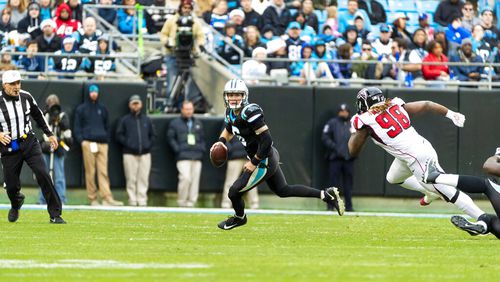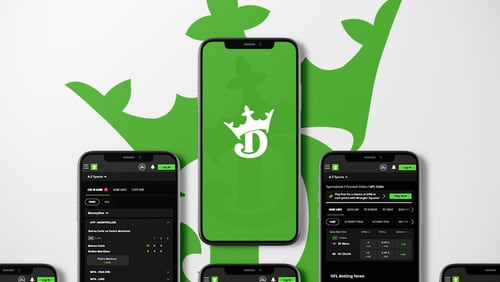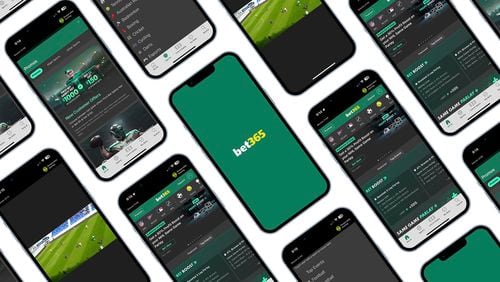There’s been a long-held view in the sports betting world that daily fantasy is all well and good, but its main purpose is to help drive users into sportsbook apps. This long-held view has been held, well, since PASPA was overturned in 2018 paving the way for legalized sports betting in the U.S.
This is fueled by a number of variables. Consider that FanDuel and DraftKings were the kings of the daily fantasy era here in the U.S., and both companies undoubtedly prioritize their online sportsbooks over fantasy offerings in today’s landscape.
Sports betting is a more lucrative business than traditional daily fantasy contests. While big daily fantasy tournaments do produce revenue, some have compared these contests to the poker rooms of brick-and-mortar casinos. Fun and interesting for a segment of users, and useful for getting people in the door… but getting them over to the table games and better yet, slot machines, is the primary goal. It’s no surprise you have to walk through hundreds of slot machines to find the poker room (if they even have a poker room anymore).
But daily fantasy has evolved, and DFS “picks” style games have closed the gap. Probably because these games more closely resemble prop betting even while following the rules and regulations that define what fantasy contests are and aren’t.
Underdog Fantasy has been one of the top companies in recent years with this new wave of innovative daily fantasy companies. It’s notable that Underdog is rolling out its sportsbook product for the first time in the North Carolina sports betting launch next month. While Underdog boasts an impressive community of users that love Underdog for its fantasy products and contests, it will be interesting to watch as Underdog rolls out sports betting in more and more states in the years ahead.
Will the company abandon its daily fantasy user base similar to what has been described at various times with DraftKings and FanDuel? Will the fantasy user base mainly exist simply as a lead generation tool for the more lucrative sports betting business?
There’s likely at least some degree of truth here, but Underdog’s CEO Jeremy Levine has been clear that he does envision a world where betting is more akin to “games” than it is to traditional European-style sportsbooks. Levine likes to remind folks that Americans grew up playing games with respect to sports and fandom, not necessarily traditional betting.
What’s this mean exactly? Is this reflected in the sports betting interface that Underdog will introduce to the world in North Carolina? Or is there truly a new way to “bet” on games that Underdog can pioneer? This remains to be seen.
Regardless of these answers, it still begs the question whether or not daily fantasy as we know it today can co-exist in a ubiquitous and mature sports betting market across the U.S. For me personally, I’ve found immense satisfaction in some of Underdog’s best ball contests. At times, even more than placing traditional spread bets and various prop bets on particular games.
Perhaps it’s the extra elements of strategy that are part of the equation in best ball. Or the fact that it’s a big longer in duration than a single game bet. Or the fact that there are huge winnings potential (e.g. Underdog’s Best Ball Mania contest this past season awarded $3 million to first place). Or the fact that you’re competing against other people like yourself, rather than the house (remember the poker analogy?).
If Levine has his way, it’s likely that users have options for season-long best ball contests as well as a myriad of sports betting markets for tonight’s game. Ideally all in a single interface and app. Note that Underdog sportsbook will be a separate app from its fantasy app in North Carolina. Though, likely a single wallet and account that sits across both apps.
While perhaps there has been criticism of former DFS kings DraftKings and FanDuel, it’s worth noting that DraftKings recently rolled out its Pick6 product and bet365 released a free to play product in a few states recently. Is this a sign that these operators are investing in more and more product offerings for users? Or simply trying to find that next lead gen tool? It’s hard to say, but it’s better than nothing.
It’s probably worth mentioning online casino at this point and how it fits into this ecosystem. It’s no secret that when it comes to profitability, online casino is really the priority for the major sportsbooks. There’s a reason why markets like Pennsylvania online casino and New Jersey online casino are major priorities for a myriad of sportsbooks. In one sense, we can extend our “marketing funnel” illustration to understand that daily fantasy leads to sportsbook users which leads to online casino users. At least in the states where this is possible. But one can argue that daily fantasy and sports betting innovation is where sportsbooks can truly serve the user and build loyalty. In some respects, online casino is a cash grab.
We’re still in the early innings of legal sports betting in the U.S., and this world will continue to evolve. Hopefully the sports fan is at the center of the evolution as companies invest in new and better products, contests and markets to enhance the overall fandom experience.
The Atlanta Journal-Constitution is not an online gambling operator or gambling site. We provide this information about sports betting for entertainment purposes only.
About the Author





